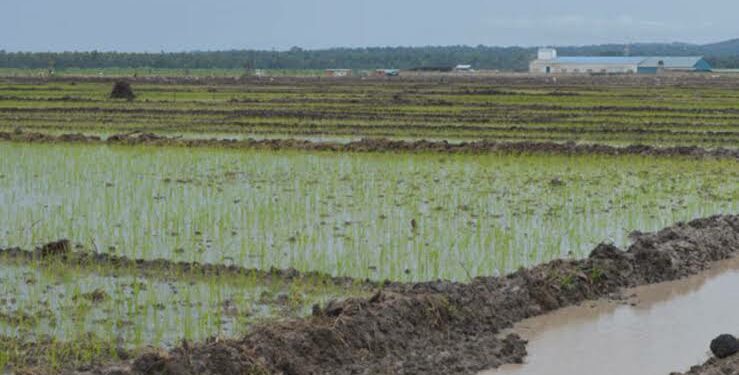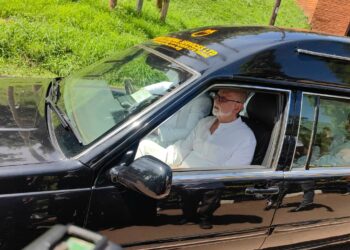The National Unity Platform (NUP) has unleashed a barrage of criticisms at government, accusing it of folding its arms on the chest, as rice growers and sand miners destroy Lwera wetland.
NUP legislators and other delegates described government as a ‘barking dog that seldom bites’ on top of supplying a neat link between intense rice growing and sand mining in Lwera to the flooding of river Katonga, which led to the destruction of the bridge, causing a transportation blackout.
In a press conference that was held at party headquarters in Kampala, presided over by the party women leaders, NUP delegates scoffed at government, for being a passive witness as a few malicious individuals embark on destroying the country’s nature.
A worst catastrophe never seen before, they said is highly likely to engulf Uganda in not a too distant future, if serious action is not taken against those bent on environmental degradation.
Woman MP for Kiboga district Hon. Christine Kaaya Nakimwero urged government to unreservedly apologize to the Ugandan population, saying it made a colossal blunder of tolerating sand mining and rice growing activities in wetlands especially Lwera, asserting that its time for the state to pay heavily for its sins.
These angry NUP diehards unanimously made a declaration, in which they called upon government to issue decrees expelling those encroaching on Lwera wetland, particularly sand miners and rice growers.
“Let’s use this opportunity to fulfill what we had earlier failed to deliver. We know very well that those who operate in Lwera engage in acts of rice growing and sand mining, such activities are extremely dangerous to Lwera wetland,” Hon. Nakimwero told journalists, adding;
“You have refused to leave the wetland, much as you acceded to undertaking an environmental impact assessment, now it has to be noted that NEMA officials are your puppets, district environmental officers also fear you, you don’t even allow them to supervise your activities.”
“Now we want to use this chance, before we seriously deal with you, of which the repurcussions will be bitter, act so fast, abandon such environmentally unfriendly activities, engage in other income generating activities because your operations have led to flooding.”
Also while addressing the journalists, the chairperson for NUP women’s league Hon. Flavia Nabagabe Kalule asked government to come to the rescue of traders whose income generating activities came to a halt, for they had long depended on Kampala-Masaka Highway to reach markets in all corners of the country, which is now cut-off.
She added that roadside vendors and small scale business operators who relied on serving travelers along the affected route, should also be aided as their trading activities were greatly hampered.
“Negative impact on that trade and investment when it comes to women. We need to remember that we have women who would want to sell their Matooke ideally to wherever, to either Kampala but right now they are telling you, they have nowhere to sell their produce because they have nowhere to pass, no means of transportation,” said Hon. Nabagabe Kalule.
The closure of this vital route has suffocated the lifeline of the flourishing trade in the great lakes region, owing to the fact that travel to the southwestern part of the country and neighboring borders, including Tanzania, DR Congo, Rwanda, and Burundi has been seriously hampered.
Several environmentalists including Hon. Mathias Mpuuga Nsamba, the Leader of Opposition in Parliament have dismissed concerns that the bridge’s damage may be attributed to substandard engineering and a compromised use of materials, but pointed to the double standards attitude of government, witnessed through keeping a blind eye to sand miners and rice growers in Lwera.
Achilles Byaruhanga, the Executive Director of Nature Uganda supplied a neat link between flooding and continued obliteration of the river ecosystem, through intense human activity like sand mining and rice growing.
“People have been encroaching on the swamps around the river. Much of the wetland has been destroyed by people who have been mining sand. Others have been clearing it for crop land,” asserted Byaruhanga.
In contrast, Dr. Barirega Akankwasah, the Executive Director for National Environment Management Authority (NEMA) said that the flooding of River Katonga should not be blamed on rice growing and sand mining, asserting that it is scientifically false and ecologically impossible.
Do you have a story in your community or an opinion to share with us: Email us at editorial@watchdoguganda.com











